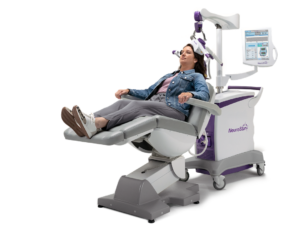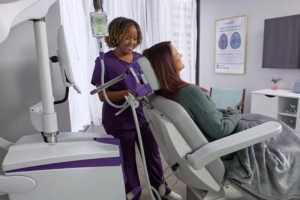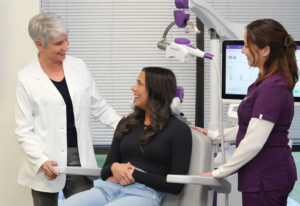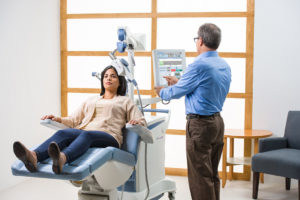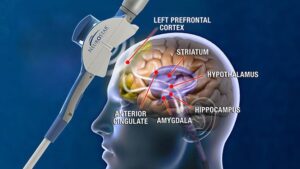Many men diagnosed with low testosterone turn to testosterone replacement therapy (TRT) as a solution to restore hormone levels and alleviate associated symptoms. In this detailed blog post, we will explore the different forms of TRT, including injections, gels, patches, and implants, along with the potential benefits such as improved sexual function, increased muscle mass, better mood, and enhanced cognitive function. However, it is imperative to also address the potential risks and side effects associated with TRT to provide a comprehensive understanding of this treatment option.
Forms of Testosterone Replacement Therapy
Injections
Before entering into the various forms of Testosterone Replacement Therapy (TRT), it is vital to understand the options available. Injections are a common method of delivering testosterone to individuals with low hormone levels. These injections are typically administered by a healthcare professional and can help restore testosterone levels effectively.
Gels and Patches
Forms of testosterone replacement therapy also include gels and patches that can be applied topically. These transdermal options provide a convenient way to supplement testosterone levels, as the hormone is absorbed through the skin. They offer a discreet and easy-to-use alternative for individuals seeking TRT.
On the other hand, implants and oral options involve more invasive methods of delivering testosterone into the body. Implants are small pellets inserted under the skin, releasing testosterone gradually over time. Oral options include tablets that can be taken daily to maintain hormone levels.
Gels and patches offer a non-invasive way to receive testosterone replacement therapy, making them a popular choice among individuals seeking TRT. They provide a steady release of testosterone throughout the day, helping to alleviate symptoms associated with low hormone levels.
Benefits of Testosterone Replacement Therapy
Sexual Function and Libido
One of the primary benefits of testosterone replacement therapy (TRT) is its positive impact on sexual function and libido in men with low testosterone levels. Replacement of testosterone can lead to improved sexual desire, performance, and overall satisfaction in sexual relationships. Research has shown that TRT can enhance erectile function and increase libido, restoring a vital aspect of a man’s well-being.
Muscle Mass and Strength
Testosterone plays a crucial role in maintaining muscle mass and strength in men. Sexual Injections, gels patches and implants have shown promising results in increasing muscle mass and strength in men with low testosterone levels. Studies have demonstrated that TRT can lead to an increase in lean body mass and improved muscle strength, making it beneficial for individuals looking to enhance their physical performance and overall fitness levels.
The increase in muscle mass and strength resulting from TRT can also have positive effects on overall physical health, such as improved bone density and reduced risk of fractures. Additionally, enhanced muscle function can lead to better mobility and agility, contributing to an overall healthier and more active lifestyle.
Mood and Cognitive Function
The benefits of testosterone replacement therapy extend beyond physical changes to include improvements in mood and cognitive function. Therapy has been shown to help alleviate symptoms of depression, fatigue, and irritability often associated with low testosterone levels. Additionally, TRT can enhance cognitive function, such as memory, focus, and mental clarity, leading to an overall improvement in quality of life and well-being.
Risks and Side Effects of Testosterone Replacement Therapy
Short-Term Side Effects
Risks associated with testosterone replacement therapy (TRT) may manifest as short-term side effects, including acne, fluid retention, and increased red blood cell count. These effects are typically mild and may subside as the body adjusts to the treatment. In some cases, individuals may also experience sleep apnea, skin reactions at the application site for gels or patches, or irritation from injections.
Long-Term Health Implications
When considering the long-term health implications of TRT, it is vital to acknowledge potential risks such as cardiovascular issues, prostate enlargement, and infertility. Research has suggested a possible link between testosterone therapy and an increased risk of heart attacks, strokes, and blood clots. Additionally, men undergoing TRT may face challenges with fertility due to a decrease in sperm production over time.
Despite these risks, it is crucial to weigh them against the potential benefits of TRT, such as improved sexual function, increased muscle mass, better mood, and enhanced cognitive function. Consulting with a healthcare provider and closely monitoring hormone levels are vital steps in mitigating risks and optimizing the effectiveness of testosterone replacement therapy.
Making an Informed Decision
Monitoring and Managing TRT
Monitoring testosterone levels regularly is crucial in ensuring the effectiveness of testosterone replacement therapy (TRT). By working closely with a healthcare provider, adjustments to the dosage and form of TRT can be made as needed to optimize hormone levels and alleviate symptoms associated with low testosterone. Additionally, managing potential side effects, such as acne, sleep apnea, or potential increased risk of cardiovascular issues, is vital for the overall well-being of individuals undergoing TRT.
When to Consider Alternatives
When considering alternatives to testosterone replacement therapy, it’s important to factor in individual health goals, lifestyle, and potential risks. In some cases, alternative treatments or lifestyle changes may be considered before begining on TRT. Consulting with a healthcare provider to assess all options and determine the best course of action is advised to make an informed decision.
Plus, exploring alternative therapies such as natural supplements, diet and exercise modifications, or addressing underlying health issues that may be contributing to low testosterone levels could be beneficial before pursuing TRT.
Conclusion
Summing up, testosterone replacement therapy (TRT) can be an effective treatment for men with low testosterone levels, offering benefits such as improved sexual function, increased muscle mass, better mood, and enhanced cognitive function. However, it’s vital to consider the potential risks and side effects associated with TRT, such as cardiovascular risks, fluid retention, and infertility. Before starting TRT, individuals should consult with healthcare professionals to weigh the benefits and risks carefully and make informed decisions about their treatment plan.


